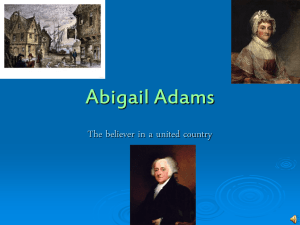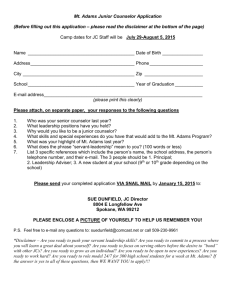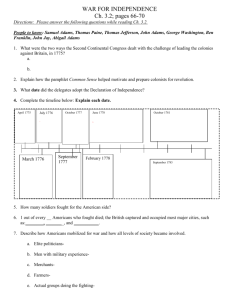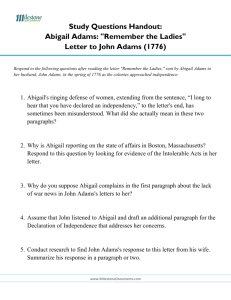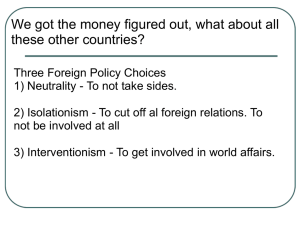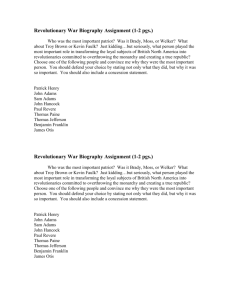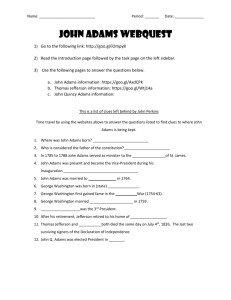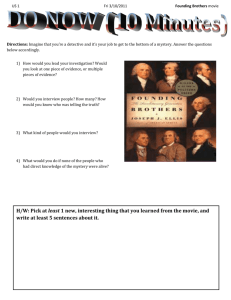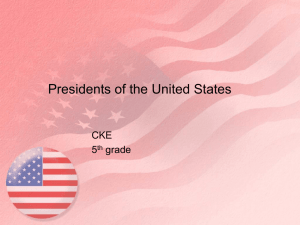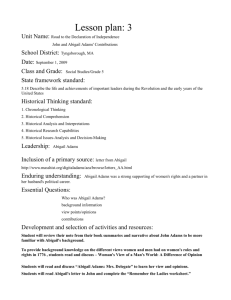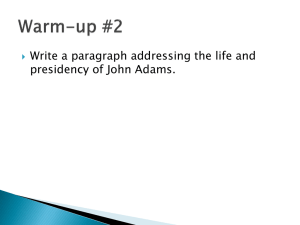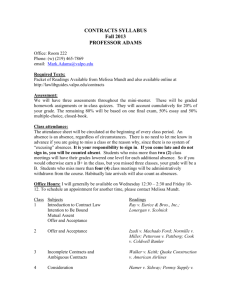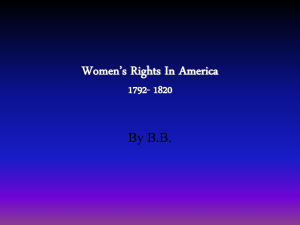Questions for Understanding the Letter from Abigail
advertisement
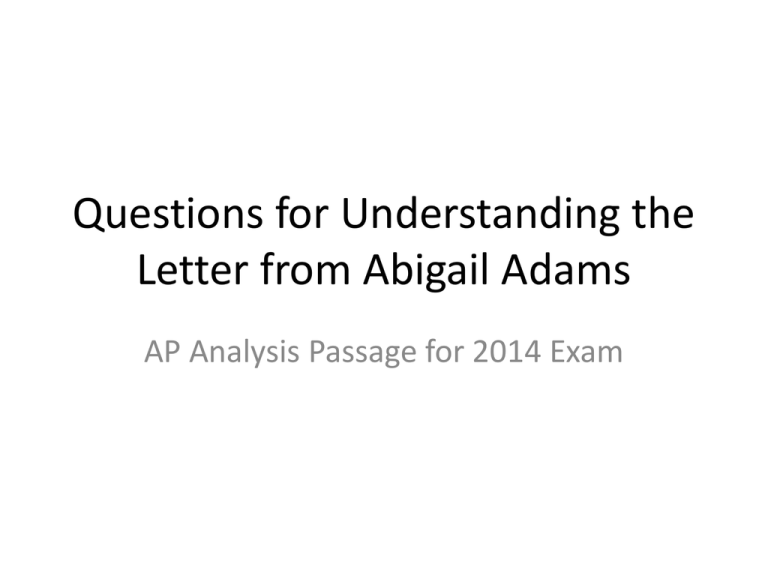
Questions for Understanding the Letter from Abigail Adams AP Analysis Passage for 2014 Exam Why does she begin the letter as she does? What is her tone? • I hope that you have had no occasion, either from enemies or the dangers of the sea, to repent your second voyage to France. If I had thought your reluctance arose from proper deliberation, or that you were capable of judging what was most for your own benefit, I should not have urged you to accompany your father and brother when you appeared to averse to the voyage. Emotional, logical, or ethical appeal? • You, however, readily submitted to my advice, and, I hope, will never have occasion yourself, nor give me reason, to lament it. Your knowledge of the language must give you greater advantages now than you could possibly have reaped whilst ignorant of it; and as you increase in years, you will find your understanding opening and daily improving. How is a traveler like a rive? • Some author, that I have met with, compares a judicious traveler to a river, that increases its stream the further it flows from its source; or to certain springs, which, running through rich veins of minerals, improve their qualities as they pass along. What does Abigail Adams mean in the following lines? • Nothing is wanting with you but attention, diligence, and steady application. Nature has not been deficient. What is message of lines 27-49? • These are the times in which a genius would wish to live…to ages yet unborn. What is Adams appealing to in lines 50-56? • Nor ought it be one of the least of your incitements towards exerting every power and faculty of your mind, that you have a parent who has taken so large and active a share in this contest, and discharged the trust reposed in him with so much satisfaction as to be honored with the important embassy which at present calls him abroad. Why does Adams end the letter the way she does? How is her ending difference than the beginning of the letter? • The strict and inviolable regard you have ever paid to truth, gives me pleasing hopes that you will not swerve from her dictates, but add justice, fortitude, and every manly virtue which can adorn a good citizen, do honor to your country, and render your parents supremely happy, particularly your ever affectionate mother. Score this analysis of syntax • After opening with her argument that her son has made the right choice to go abroad, Adams addresses the more general benefits of traveling. She says that a “judicious traveler” is like a “river” using a long sentence. Then, she talks about the “minerals” the river gathers along the way. A traveler gains new knowledge much like the minerals gained as a river flows. This analogy makes her argument more interesting and holds the audience’s attention. Score this analysis of diction Adams begins her letter by expressing her sharp insistence that her son has made the correct choice in taking her advice to go abroad. Adams dismisses her sons initial “reluctance” as not something that came from “proper deliberation,” insisting that he is not “capable of judging” what is best for himself. The formality of this language sets a stern tone, an attitude of a mother who is speaking from experience. She begins the letter by acknowledging her son’s young age in order to highlight her credibility as an authority, as a woman who has lived longer and knows better.


